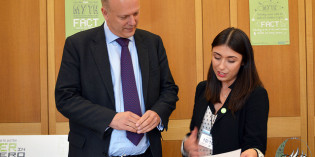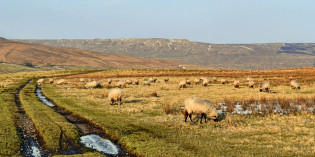Achieving accountable government

The Government’s rehabilitation policy is in crisis due to the Justice Secretary’s ready embrace of austerity
Government rehabilitation policy is in crisis, with the Justice Secretary and Lord Chancellor Chris Grayling presiding over a series of monumental policy errors which have combined to erode prisoner rights and derail the “Rehabilitation Revolution” promised by his predecessor Ken Clarke, according to Richard Ridyard. He argues that Grayling’s devotion and justification of the Government’s […]

The decision of the majority of Scots to vote ‘No’ may result in even more radical constitutional change to the UK
Scotland voted No to independence on 18 September. Eve Hepburn writes that the referendum has opened up a Pandora’s Box of territorial identities, politics and interests in the UK. She asks whether the pro-UK parties really believe that it will be possible to initiate and conclusively finalise a proper, thoughtful, and consultative process of radical constitutional change […]

We need a better debate on the “Drip, Drip, Drip” of the surveillance state
Ross Bellaby from the University of Sheffield analyses the rise of the British ‘surveillance state’ and the recent Data Retention and Investigatory Powers (DRIP) law. He argues we need a more sustained debate around the potential, limits and expectations we have for new forms of social media and their implications for privacy. Similar PostsInformational privacy: […]

Parliamentary salaries are frequently a source of party funding, but what are the implications for democracy?
In nearly all modern democracies, parliamentarians by now receive a full-time salary in order to attract qualified candidates and representatives from all corners of the society. These payments are, in principle, not intended to constitute an additional source of party income. Yet, Nicole Bolleyer and Siim Trumm have shown that in many democracies they are […]

The increasing influence of unaccountable forces on politics has led to a crisis of identity
As the Labour party conference continues in the shadow of the wide-ranging implications of Scotland’s Independence Referendum and the increasing progress of UKIP in England, Karin Christiansen, General Secretary of the Co-operative Party, argues that a crisis of identity is the consequence of states and individuals increasingly finding themselves unable to control external forces. She looks […]

When it comes to a fair constitutional settlement, beware of constitutional hyper-activism
The Flower of Scotland may well be blooming but a number of thorny issues face the Prime Minister and the leaders of the main parties in the UK, writes Matthew Flinders. The Prime Minister’s commitment to a ‘new and fair constitutional settlement’ not just for Scotland but for the whole of the United Kingdom may well reflect […]

It may be time to revisit the old idea of moving the seat of British government out of London
London continues to dominate British public life, with political decision-making centralised to an almost unbelievable degree. Previous reformers have posited separating the financial and political capitals of the UK, by moving the political element elsewhere, with the Yorkshire moors even being suggested. James Dunnett argues that it may be time to revisit that radical proposal. Similar PostsBook Review: […]

It is not clear what will happen to Scotland’s 44,000 civil servants in the event of independence
At present, almost 44,000 civil servants are working in Scotland: 27,000 for UK Government departments and around 17,000 for the Scottish Government. It is not clear what will happen to these civil servants in the event of independence, says Robyn Munro. Similar PostsThe case of Catalonia: understanding the political use of de facto independence referendumsGoverning […]

Could Scotland buck the trend and vote ‘Yes’?
The polls have been narrowing in Scotland’s independence referendum debate with the vote just over two weeks away. Alan Renwick reflects here on whether the ‘Yes’ campaign really could pull off an unexpected victory. Similar PostsHow to design a constitutional convention for the UKBattle of the mandate: defining the dispute over a new Scottish independence referendumBeyond anecdotes […]

20 things we learned about democracy in August 2014
Parliament was in recess throughout August, despite calls for its recall. Even so, none of this meant that British democracy stopped last month, with numerous interesting facts, factoids, and observations revealing themselves. Sean Kippin of Democratic Audit selects the best and most interesting. Similar Posts20 things we learned about democracy in March 201520 things we […]


 Democratic Audit's core funding is provided by the Joseph Rowntree Charitable Trust. Additional funding is provided by the London School of Economics.
Democratic Audit's core funding is provided by the Joseph Rowntree Charitable Trust. Additional funding is provided by the London School of Economics.